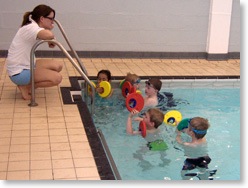CURRENT ISSUE
Click on the cover to view as a virtual edition:
FEBRUARY 2026
Click on the cover to view as a virtual edition:
FEBRUARY 2026
To see back issues, please click here.
MEDIA PACK
To download a PDF copy of the 2026 SPN media pack, click here.
For forward features information, click here.
To discuss advertising within SPN, please call Tony Weston on +44 (0)1474 813433 or to email him, click here.
To download a PDF copy of the 2026 SPN media pack, click here.
For forward features information, click here.
To discuss advertising within SPN, please call Tony Weston on +44 (0)1474 813433 or to email him, click here.
SUBMIT NEWS
To submit a news story or press release about your company, please click here.
PLEASE NOTE: When submitting, please ensure any image sent is high resolution.
To submit a news story or press release about your company, please click here.
PLEASE NOTE: When submitting, please ensure any image sent is high resolution.
LATEST NEWS
 Pool closures key to drop in swimming standards
Pool closures key to drop in swimming standards
The closure of more than three hundred public swimming pools in the last 18 months has been blamed as one of a number of reasons why more than one in three primary school leavers do not have the basic swimming skills to save their lives, a report has found.
It estimated more than 200,000 11-year-olds have not mastered basic survival techniques, such as floating, despite swimming being compulsory for children aged seven to 11. Pupils leaving primary school should be able to swim unaided for 25 metres.
However, on average 36.5% of children in 2,577 English primary schools did not achieve the required level by the end of last year, according to the report by Kellogg's and the Amateur Swimming Association.
And a separate Kellogg’s survey found that 46% of parents with children aged six to 11 admitted their child couldn't swim.
The report blamed rising costs, overloaded school timetables and in particular pool closures all over the UK which have taken the opportunity to swim away from hundreds of thousands of schoolchildren.
"It is clear there has been a trend of too many pool closing either through financial restrictions or just old age. It is important to save more of these pools which need refurbishment rather than see them disappear for ever. Too many communities have lost their pools they badly need."
The Amateur Swimming Association and Kellogg's has called on the Government to prioritise the sport 'so every child has the opportunity to learn to swim irrespective of socio-economic and ethnic background'.
They have launched a six-point school swimming manifesto which includes urging head teachers not to close existing pools; Ofsted monitoring swimming as part of inspections; the improvement of water safety training for primary teachers and support for secondary school pupils who cannot swim.
During Key Stage Two (ages seven to 11), swimming and water safety is a compulsory part of the national curriculum.
By the age of 11, pupils should be able to 'pace themselves in floating and swimming challenges related to speed, distance and personal survival' as well as swim unaided for a distance 'of at least 25 metres'.
However, data obtained by Kelloggs under the Freedom of Information Act discovered that only 35 out of 85 councils in England which responded to the survey actually held swimming records.
David Walker, RoSPA's Leisure Safety Manager, said: "We are concerned to see that so many children are struggling to swim at an acceptable standard.’"
Drowning is the third most common cause of accidental death among children in England.
Department for Education spokesman said: "Swimming is a compulsory part of the National Curriculum, and all primary schools have a duty to provide swimming lessons for their pupils. We would expect that schools would take the needs of their children into account in making all decisions."
<< Back to home

The closure of more than three hundred public swimming pools in the last 18 months has been blamed as one of a number of reasons why more than one in three primary school leavers do not have the basic swimming skills to save their lives, a report has found.
It estimated more than 200,000 11-year-olds have not mastered basic survival techniques, such as floating, despite swimming being compulsory for children aged seven to 11. Pupils leaving primary school should be able to swim unaided for 25 metres.
However, on average 36.5% of children in 2,577 English primary schools did not achieve the required level by the end of last year, according to the report by Kellogg's and the Amateur Swimming Association.
And a separate Kellogg’s survey found that 46% of parents with children aged six to 11 admitted their child couldn't swim.
The report blamed rising costs, overloaded school timetables and in particular pool closures all over the UK which have taken the opportunity to swim away from hundreds of thousands of schoolchildren.
"It is clear there has been a trend of too many pool closing either through financial restrictions or just old age. It is important to save more of these pools which need refurbishment rather than see them disappear for ever. Too many communities have lost their pools they badly need."
The Amateur Swimming Association and Kellogg's has called on the Government to prioritise the sport 'so every child has the opportunity to learn to swim irrespective of socio-economic and ethnic background'.
They have launched a six-point school swimming manifesto which includes urging head teachers not to close existing pools; Ofsted monitoring swimming as part of inspections; the improvement of water safety training for primary teachers and support for secondary school pupils who cannot swim.
During Key Stage Two (ages seven to 11), swimming and water safety is a compulsory part of the national curriculum.
By the age of 11, pupils should be able to 'pace themselves in floating and swimming challenges related to speed, distance and personal survival' as well as swim unaided for a distance 'of at least 25 metres'.
However, data obtained by Kelloggs under the Freedom of Information Act discovered that only 35 out of 85 councils in England which responded to the survey actually held swimming records.
David Walker, RoSPA's Leisure Safety Manager, said: "We are concerned to see that so many children are struggling to swim at an acceptable standard.’"
Drowning is the third most common cause of accidental death among children in England.
Department for Education spokesman said: "Swimming is a compulsory part of the National Curriculum, and all primary schools have a duty to provide swimming lessons for their pupils. We would expect that schools would take the needs of their children into account in making all decisions."
<< Back to home


















